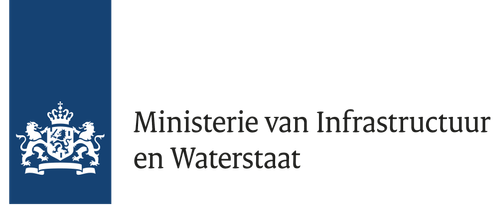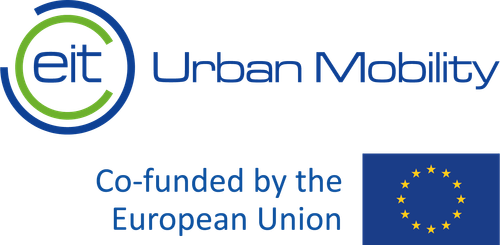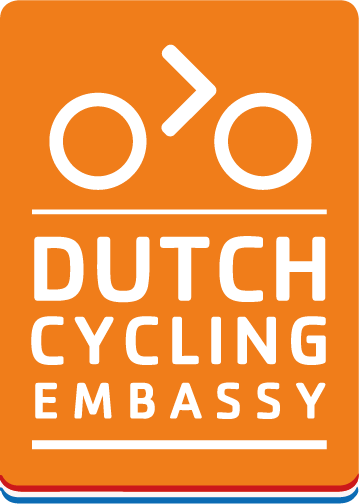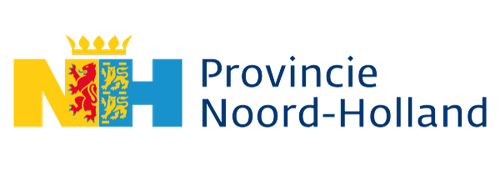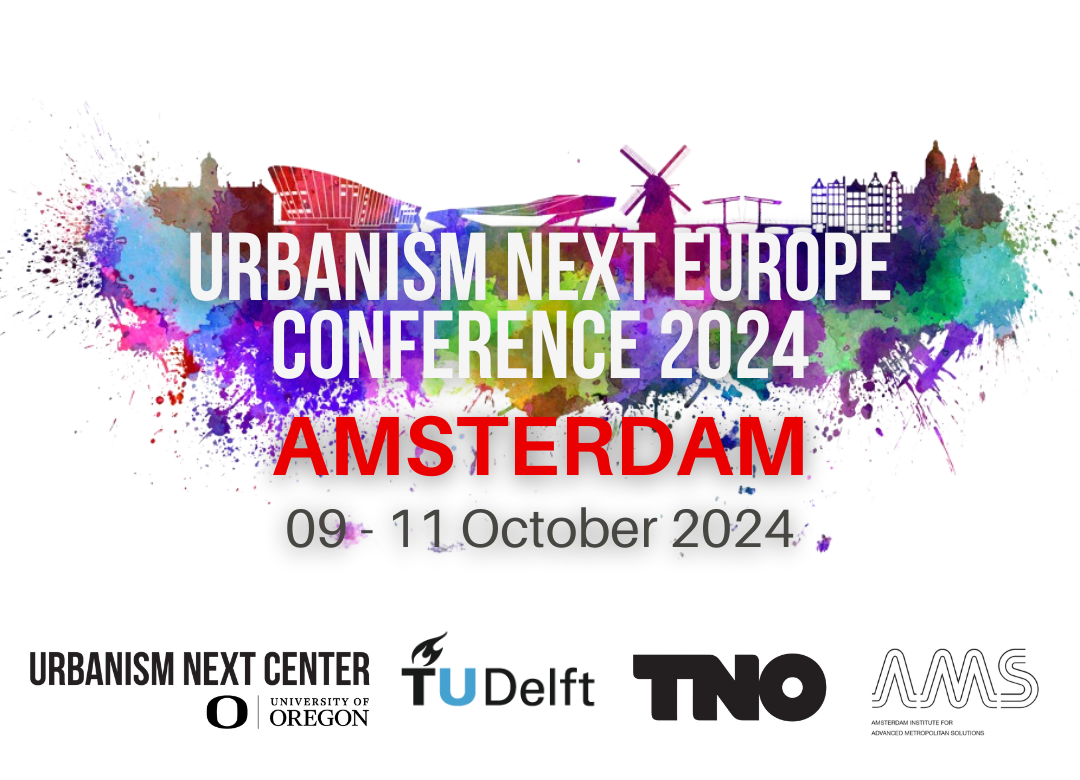
Schedule & presentations
Location: Anantara Grand Hotel Krasnapolsky Amsterdam
Location: Diamond
Location: departure from Opal I
Location: departure from Opal I
Presenters:
- Dr. Irene Luque Martin, Assistant Professor - TU Delft | Faculty of Architecture and the Built Environment, Section of Urban Design
Location: Emerald I
Presenters:
- Maaike Snelder, Principal scientist - TNO and TU Delft
- Stefan van der Spek, prof. dr. - TU Delft
- Nicole van Nes, Prof.dr. - TU Delft
Location: Diamond
Presenters:
- Dr. Anne Brown, Assistant Professor - University of Oregon
- Menno Lijkendijk, Vice President Sales - Gaiyo
- Eric Mink, Manager Innovation Unit - Ministry of Infrastructure van Watermanagement
- Diana Vonk Noordegraaf, Senior Consultant - TNO Vector
- Jaap Vreeswijk, Dr. - Arcadis
- Isabel Wilmink, Ir. - TNO
Location: Opal II
Presenters:
- Dr. Vasileios Milias, Dr. - AMS Institute
- Dr. Achilleas Psyllidis, Assistant Professor - Delft University of Technology
Location: Emerald II
Location: Wintergarden
Location: departure from Opal I
Presenters:
- Carla Robb, Urban Designer - TNO
- Azarakhsh Salem, PhD student - TU Delft
- Daniel Scheerooren, Project manager - AMS institute / Municipality Amsterdam
- Maaike Snelder, Principal scientist - TNO and TU Delft
- Dr. Bart van Arem, Full Professor of Transport Modeling - TU Delft
Location: Diamond
Presenters:
- Evan Costagliola, Senior Principal - Cityfi
- Andrew Glass Hastings, Executive Director - Open Mobility Foundation
- Alexander Pazuchanics, Head of Mobility Intelligence - Vianova
- Gemma Schepers, Smart Mobility Project Manager - City of Amsterdam
- Tu-Tho Thai, Lead of Standardisation group - BNTRA - GT7
Location: Emerald II
Presenters:
- Roelof Pieters, Mr - Sunshine Lab
- Dr. Marc Schlossberg, Professor - University of Oregon
Location: Emerald III
Presenters:
- Dr. Koen Faber, Senior Innovation Officer - Ministry of Infrastructure and Watermanagement
- Dr. Edoardo Felici, Policy Coordinator - Ministry of Infrastructure and Water Management
Location: Emerald I
Location: departure from Opal I
Location: Wintergarden
Location: Anantara Grand Hotel Krasnapolsky Amsterdam
Location: Ballroom
Location: Ballroom
Location: Ballroom
Location: Opal I
Presenters:
- Gavin Luter, Acting Managing Director - EPIC-N
- Mzime Murisa, Africa Program Coordinator - EPIC-N
- Dr. Joel Rogers, CEO & Chair - EPIC-N
Location: Ballroom
Presenters:
- Jeroen Borst, Manager - TNO
- German Castignani, Digital Twin Innovation Centre Maneger - Luxembourg Institute of Science and Technology (LIST)
- Dr. Edoardo Felici, Policy Coordinator - Ministry of Infrastructure and Water Management
- Dr. Desislava Petrova-Antonova, Professor - GATE Institute
- Francisco Rodriguez Perez-Curiel, Tecnalia
Location: Opal II
Presenters:
- Dr. Jan Barski, Post-Doc Research Associate - HafenCity University Hamburg
- Geiske Bouma, Senior Researcher Urban Innovation - TNO Vector
- Suzanne Green, Project Manager - City of Gothenburg
- Andreas Jasiulek, HafenCity University Hamburg
- Julian Sahr, Project Manager - City of Hamburg, District Hamburg-Altona
- Sondre Vasseng, Project manager - City of Oslo
Location: Emerald I
Presenters:
- Bon Bakermans, Policy Advisor Smart Mobility - Dutch Ministry of Infrastructure and Water Management
- Evan Costagliola, Senior Principal - Cityfi
- Marjolein Heezen, Consultant/Researcher - TNO
- Nico Larco, Director - Urbanism Next Center / University of Oregon
- Kevin Vedder, Researcher/consultant - TNO
Location: Emerald II
Presenters:
- Hector Gutierrez, Sr. Manager - LA Metro
- Chrétienne Hoek, Principal Consultant - Rebel
Location: Diamond
Presenters:
- Melissa Bruntlett, Sustainable Mobility Consultant - Royal HaskoningDHV
- Dr. Paul Buijs, Associate Professor at University of Groningen - University of Groningen
- Jeska de Ruiter, Consultant Sustainable Urban Mobility and Behavior - Royal HaskoningDHV
- Gert Jan Prummel, Program Manager Sustainable Logistics - Gemeente Den Haag
- Erik Regterschot, Project Manager Sustainable Mobility - Royal HaskoningDHV
Location: Ruby
Location: Wintergarden
Location: Ballroom
Presenters:
- Jeroen Beukers, Head of Innovation Automated Driving & Smart Mobility - TPG - Transports Publics Genevois
- Julia Friedlander, Senior Manager: Automated Driving Policy - San Francisco Municipal Transportation Agency (SFMTA)
- Dr. Satu Innamaa, Principal Scientist - VTT
- Isabel Wilmink, Ir. - TNO
Location: Opal II
Presenters:
- Dan Firth, Director of Knowledge, Research and Programmes - C40
- Kristin Hull, Planning and Project Development Division Manager - Portland Bureau of Transportation
- Franklin Jones, CEO/Founder - B-Line Urban Delivery
- Kelly Rula, Director - University of Washington Urban Freight Lab
- Jacob Sherman, New Mobility & Electrification Manager - Portland Bureau of Transportation
- Dr. Lori Tavasszy, Professor - TU Delft
Location: Ruby
Presenters:
- Luigi Barraza Cardenas, Urban Planner - Arcadis
- Vincent Joanknecht, Gemeente Rotterdam
- Tygo Nijsten, MSc - University of Amsterdam and TNO
- Carla Robb, Urban Designer - TNO
- Miss Jyotsna Singh, PhD - TU Delft
- Maaike Snelder, Principal scientist - TNO and TU Delft
- Sean van der Lee, MSc - TU Delft
Location: Emerald III
Presenters:
- Dirk Grevink, Policy advisor - Ministry of Transport (I and W)
- Espen Strand Henriksen, Head of Mobility and Business Development - Kolumbus
- Dr. Rob van der Bijl, Professor - University of Gent
- Dr. Niels van Oort, Dr. - Delft University of Technology
- Jan Van selm, CEO - Samenwerkingsverband DOVA
- Dr. Wijnand Veeneman, Dr. - Delft University of Technology
Location: Emerald II
Presenters:
- SOPHIE BONNECARRERE, Senior Public Policy Manager - Uber
- Meredith Glaser, Chief Executive Officer - Urban Cycling Institute
- Lidia Signor, Head of Multimodal Mobility Unit - UITP
- Karen Vancluysen, Secretary General - POLIS network
- Melanie van der Horst, Deputy Mayor of Transport - City of Amsterdam
Location: Emerald I
Presenters:
- Dr. Arjan de Ruijter, PostDoc - TU Delft
- Dr. Nejc Geržinič, PostDoc - TU Delft
- Eduardo Green, Service designer - Municipality Amsterdam
- Dr. Sascha Hoogendoorn-Lanser, Director MICD - Delft University of Technology
- Daniel Scheerooren, Project manager - AMS institute / Municipality Amsterdam
Location: Diamond
Location: Wintergarden
Presenters:
- Elif Arslan, TU Delft
- Dr. Serge Hoogendoorn, Prof. - TU Delft
- Dr. Sascha Hoogendoorn-Lanser, Director MICD - Delft University of Technology
- Jeroen Steenbakkers, Argaleo
- Yanyan Xu, TU Delft
Location: Opal II
Presenters:
- Uta Burghard, Dr. - Hochschule Karlsruhe - Karlsruhe University Of Applied Sciences
- Raphaela Mak, CEO - Metvibee
- Dr. Devon McAslan, Researcher - Chalmers University of Technology
- Dr. Daniel Piatkowski, Associate Professor - Oslo Metropolitan University
- Josephine Troger, Researcher - Fraunhofer ISI
Location: Emerald I
Presenters:
- Tom Alkim, Strategic Advisor Connected & Automated Mobility - MAPtm
- Evan Costagliola, Senior Principal - Cityfi
- Chris de Veer, Mobility Innovation Manager - Province of North Holland
- Dr. William Riggs, Assistant Professor - University of San Francisco
- Dr. Frances Sprei, Professor in Sustainable Mobility - Chalmers
Location: Ballroom
Presenters:
- Geiske Bouma, Senior Researcher Urban Innovation - TNO Vector
- Nico Larco, Director - Urbanism Next Center / University of Oregon
- Marije ten Kate, Head Urban Planner - Municipality of Rotterdam
- Tom van der Eng, City of Amsterdam
Location: Emerald III
Presenters:
- Dr. Yashar Araghi, Senior Scientist and Research Lead - TNO
- Wietske Berenschot, Expert on Mobility Strategies - Nederlandse Spoorwegen NS
- Klaas Boersma, Senior Strategic Advisor at Royal Schiphol Group & Board member at RailForum - Royal Schiphol Group
- Sander Buningh, BAM
- Dr. Martin Nagelsmit, Head of Sustainability and Environment Department - NLR
- Jessica Schroeder, Scientific Researcher - Fraunhofer-Institute for Material Flow and Logistics
Location: Emerald II
Presenters:
- Joeri Jongeneel, Senior logistiek adviseur gemeente Amsterdam - Gemeente Amsterdam
- Luuk Meijer, Consultant - TNO
- Art Pearce, Director Of Policy Planning and Projects - Portland Bureau of Transportation
- Hans Quak, Senior scientist - TNO
Location: Ruby
Presenters:
- Dr. Matthew Bruno, Postdoctoral Researcher - TU Delft
- Miss Kelly Pronk, Policy Advisor - Vervoerregio Amsterdam
- Marieke Smit, Head of the Strategy Department - Department of Innovation and Strategy for the Dutch Mobility of the Ministry of Infrastructure and Water Management
- Michael Tahmoressi, Guest Researcher - Tu Delft
Location: Diamond
Location: Lobby
Location: Straat Museum: NDSM-PLEIN 1 1033 WC AMSTERDAM
Location: Anantara Grand Hotel Krasnapolsky Amsterdam
Location: Ballroom
Location: Ballroom
Location: Ballroom
Location: Opal I
Presenters:
- Luigi Barraza Cardenas, Urban Planner - Arcadis
- Diego Garcia Fernandez, Associate - Urban Planning & Architecture - Arcadis
- Oliver Hartleben, Director - Sr. Practice Lead, Placemaking - Arcadis IBI Group
- Angela Lopez, Urban Planner - Arcadis
Location: Emerald III
Presenters:
- Geiske Bouma, Senior Researcher Urban Innovation - TNO Vector
- Matthew Halstead, Senior Project Leader - TNO, Energy and Material Transition
- Adriana O'Phelan, Programme and Mission Lead - Democratic Society
Location: Diamond
Presenters:
- Marte Bugel, AMS Institute
- Roy Korthouwer, Vianova
- Dorine Meeuwen, Senior Systemic & Service Designer - City of Amsterdam
- Dr. Vasileios Milias, Dr. - AMS Institute
- Bernike Rijksen, MSc. - Goudappel
- Daan van der Tas, Program Manager DRO - City of Amsterdam
Location: Opal II
Presenters:
- Dr. Anna Anund, Research Director - VTI
- Guido Di Pasquale, Managing Director - PAVE Europe
- Dr. Andrea Hauslbauer, Research Associate - DLR
- Miss Rebecca Marsden, VP of Commercial Finance - Oxa
- Edwin Mermans, Senior Advisor International Affairs - Province of Noord-Brabant
- Stella Nikolaou, CERTH
Location: Ballroom
Presenters:
- Susanne Balm, MSc - Amsterdam University of Applied Sciences
- Dr. Joris Beckers, Professor - University of Antwerp
- Thomas Brauner, Coordinator European Projects & Partnerships - Logistics Initiative Hamburg
- Amber van Stijn, Community engagement manager (Amsterdam City Center) - City of Amsterdam
Location: Emerald I
Presenters:
- Hussein Al-Tamimi, Product owner - Dutch Railways (NS)
- Dorine Duives, Ass. prof active modes - Delft University of Technology
- Dr. Nejc Geržinič, PostDoc - TU Delft
- Leah Watetu Mbugua, Ir. - TU Delft
- Dr. Mark van Hagen, Researcher - Dutch Railways (NS)
- Dr. Niels van Oort, Dr. - Delft University of Technology
Location: Emerald II
Presenters:
- Richard Jordan, Managing Director - Zenion
- Ellen Kennedy, Principal - RMI
- Samuel Pierce, Project Manager - Cycling Industries Europe
- Julia Wunsch, Global Delivery Public Policy - Uber
Location: Ruby
Location: Ballroom
Location: Wintergarden
Presenters:
- Dr. Yashar Araghi, Senior Scientist and Research Lead - TNO
- Eelco de Vink, Area Director Energy Transition Region South Holland - Stedin
- Dr. Wijnand Veeneman, Dr. - Delft University of Technology
Location: Diamond
Presenters:
- Russ Brooks, Mobility Planner - City of Minneapolis
- Michael Schwartz, General Manager of City Software Solutions - INRIX
- Jacob Sherman, New Mobility & Electrification Manager - Portland Bureau of Transportation
- Wilson Tam, City of San Jose Department of Transportation
- Karen Vancluysen, Secretary General - POLIS network
Location: Opal II
Presenters:
- Jesse Hablé, Consultant Mobility and Urban Development - Rebel Group
- Dr. Karla Münzel, Researcher - University of Applied Sciences Utrecht
- Loes Salomez, Project Officer and Policy Advisor - Autodelen.net
- Dr. Thomas Verbeek, Assistant Professor - TU Delft
Location: Emerald I
Presenters:
- Endre Angelvik, Executive Vice President Radical Innovation - Ruter
- Vincent Neumayer, Deputy Head of Multimodal Mobility Planning - Wiener Linien
- Natalie Rodriguez, Head of Innovation - Hambuerger Hochbahn
- Clelia Schwing, Powering Public Mobility
- Lidia Signor, Head of Multimodal Mobility Unit - UITP
Location: Emerald II
Presenters:
- Ellen Pot, Public transport concession manager - Municipality of Almere
- Christian Riester, Team Co-Lead, Automated Mobility - Bax
- Koen Schietecatte, Project Leader Automated Driving - De Lijn
Location: Ruby
Presenters:
- Sonata Caric, LEEP AP ND - Architectural Designer
- Lisa Nisenson, VP New Mobility - WGI
Location: Emerald III
Presenters:
- Paola Astegiano, Senior Project Manager - FIT Consulting
- Dr. Joris Beckers, Professor - University of Antwerp
- Ioanna Fergadiotou, Head of Athens Lab - INLECOM
- Sergio Fernandez Balaguer, Head of International Department - EMT Madrid
- Raffaele Vergnani, Urban Freight Cluster Lead - POLIS
Location: Ballroom
Location: Wintergarden
Presenters:
- Marlon Boeve, TU Delft
- Dr. Anne Brown, Assistant Professor - University of Oregon
- Tanja Vonk, Senior Consultant - TNO
Location: Emerald I
Presenters:
- Bas Govers, Leading professional Sustainable Urban Mobility - Goudappel
- iris van Hagen, Leading professional Sustainable Urban Mobility - Goudappel
- Dr. Mark van Hagen, Researcher - Dutch Railways (NS)
Location: Emerald II
Presenters:
- Dr. Niels van Oort, Dr. - Delft University of Technology
Location: Diamond
Presenters:
- Harald Kollmann, Head of Strategy - Wiener Stadtwerke
- Verena Kuen, CEO - 1030 Innovation Partners
- Ana-Maria Salcu, Head of Co-Creation - 1030 Innovation Partners
- Gerald Stoeckl, CEO - Upstream Mobility
Location: Ballroom
Presenters:
- Vitor Freire, Creative Director - Imagination of Things
Location: Opal II
Presenters:
- Franklin Jones, CEO/Founder - B-Line Urban Delivery
- Kelly Rula, Director - University of Washington Urban Freight Lab
- Michael Schwartz, General Manager of City Software Solutions - INRIX
- Jacob Sherman, New Mobility & Electrification Manager - Portland Bureau of Transportation
Location: Ruby
Location: Wintergarden






